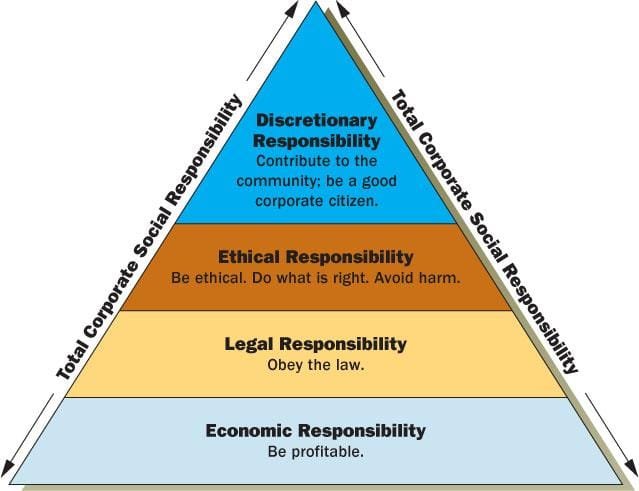In today’s world, businesses are expected to do more than just make profits. There’s a growing expectation that companies should contribute positively to society. Two important ideas have emerged from this: corporate citizenship and corporate social performance (CSP). These terms are closely related but have different meanings. Let’s break them down in simple terms.
Table of Contents
Corporate Citizenship

Corporate citizenship is the idea that a company has a responsibility to act in a way that benefits society. It’s about more than just earning money it’s about being a good member of the community. Just like a person should behave responsibly in society, a company should behave responsibly in the world.
Being a good corporate citizen means acting ethically treating employees fairly, being honest in business, and avoiding harmful practices like corruption. It also involves taking care of the environment by reducing pollution, conserving resources, and using energy efficiently. Additionally, good corporate citizenship means giving back to the community, supporting local projects, and being involved in charitable work that improves people’s lives.
Moreover, corporate citizenship includes respecting human rights, promoting diversity, and being aware of the company’s impact on the world. It’s not just about what a company does inside its offices, but how it interacts with the outside world.
Corporate Social Performance (CSP)

Corporate Social Performance (CSP) is a way of measuring how well a company is fulfilling its social responsibilities. It looks at the results of a company’s actions in terms of their impact on society. CSP is a way of evaluating whether a company’s efforts align with its values and if it’s really making a positive difference.
CSP is usually looked at in three main areas:
Social Performance
This looks at how well a company treats its employees, customers, and other people. It includes things like paying fair wages, providing safe working conditions, and ensuring customer satisfaction. It also covers the company’s efforts to protect human rights and avoid harming vulnerable groups.
Environmental Performance
This focuses on how a company affects the environment. Companies with good environmental performance work to reduce pollution, save energy, recycle, and limit waste. They may also adopt eco-friendly practices or engage in projects to protect nature.
Economic Performance
Although making money is a key goal for any company, CSP acknowledges that businesses should contribute positively to the economy. This might involve paying taxes, creating jobs, or supporting local economic development. The goal is to create lasting value for communities, not just short-term profits.
CSP helps measure whether a company’s actions as a corporate citizen are making a real impact. It’s about looking at the outcomes of what the company does and how it meets its responsibilities.
The Relationship Between Corporate Citizenship and CSP
Corporate citizenship and CSP are connected, but they aren’t the same. Corporate citizenship is about a company’s commitment to doing good in society, while CSP is how we measure the effectiveness of those efforts.
A company can be a good corporate citizen by being involved in social causes or reducing its environmental impact, but to understand if these actions are truly helping, we need to look at CSP. CSP tells us whether those actions are really making a difference.
In short, corporate citizenship is the intention to do good, while CSP is the result of whether those intentions are turning into positive actions.
Why These Concepts Matter
Understanding corporate citizenship and CSP is important for businesses today. Consumers, investors, and employees are paying more attention to how companies behave, not just what they sell. Companies that act responsibly and contribute positively to society are often viewed more favorably and build stronger trust with people.
Good corporate citizenship and strong CSP can also lead to long-term success for a business. Companies that focus on sustainability, ethical practices, and social responsibility tend to have better reputations, more loyal customers, and can perform better financially. By following these principles, companies can help society while also benefiting themselves.
Conclusion
Corporate citizenship and corporate social performance are important concepts for businesses. Corporate citizenship is about a company’s responsibility to act in ways that help society, while CSP measures how effective those actions are. Together, they help businesses act responsibly, build stronger relationships with their communities, and create a better future for both themselves and the world around them.
Frequently Asked Questions (FAQ)
What is corporate citizenship?
Corporate citizenship refers to a company’s responsibility to act in ways that benefit society and the environment. It involves ethical business practices, supporting local communities, respecting human rights, and operating in a way that has a positive impact on the world.
Why is corporate citizenship important for businesses?
Corporate citizenship is important because it helps companies build trust and credibility with customers, employees, and investors. Companies that are good corporate citizens often have better reputations and long-term success. They contribute to a better society and environment, which ultimately benefits their business.
Related Articles

